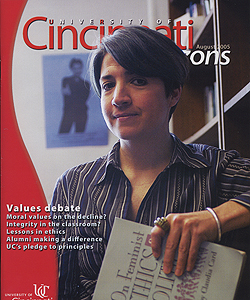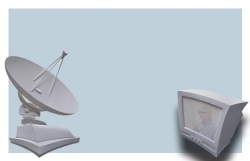Media choices create challenges in deciding what's news
by Deborah Rieselman
Despite the bottom line of profit and loss statements, media still have a responsibility to an informed society, says University of Cincinnati journalism director Jon Hughes, who bemoans media's failure to uphold its obligation, leaving "readers and viewers less informed on issues than they should be."

 Past Issues
Past Issues